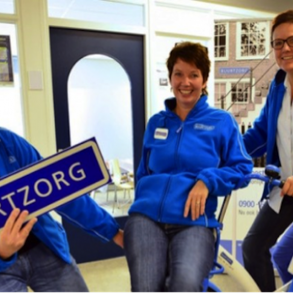By George Pór for Enlivening Edge Magazine
Every day, somewhere on this planet, teams are forming, norming, storming, and performing according to an entirely new playbook. All for the sake of freeing people from the economic and human wastelands of command-and control management. And for the sake of freeing them to enjoy their work and expand their individual and collective creativity.
The pages of this new playbook are being written by change facilitators—people who initiate, observe, reflect on, and describe new and liberating ways of organizing work. People like you, like all of us. (Whenever we act on a tension between our work in the here-and-now, and how it could be, we become change facilitators). These pages are being written so they can be shared beyond a particular workplace, so they can sail on a fresh wind and impact people in workplaces around the globe.
This is already happening thanks to you enliveners, authors, and readers of Enlivening Edge Magazine. Let this current cycle of the Magazine become a powerful instrument in your hands and on your tongue, even as you continue to shape the future of work.
Nowadays, any conversation about the future of work must be situated in a global context, with so many things to consider: a galloping complexity, an urgency spurred by technological changes, our instant access to a plethora of knowledge on just about anything, and the burgeoning variety of media.
No wonder that cyberspace is buzzing with conversations about complexity. In this magazine cycle you’ll glean insights from conversations on Facebook, Medium, and Future Considerations.
And what of the future? Well, the best way for an organization to predict the future is to co-create it (to riff on Erich Fromm). That is the deeper intention or purpose of “The Future of Work” Participatory Action Research project co-sponsored by Enlivening Edge and the Centre for Future Thinking at Hawkwood College.
While it seems that evolution is happening to us, it is also emerging through our purposeful actions. This realization gives rise to the question: how can organizations discover their evolutionary purpose? Read what Frederic Laloux has to say about this question, and how Spring Cheng comes at it from a feminine perspective.
In this magazine cycle, we continue to illuminate various strands in the broader fabric of organizational innovation and reinvention. I invite you to look up the “7 more movements” article and the interview I gave at the Integral European Conference, last year.
Yet another strand is being woven by the Next-Stage World community: an upcoming gathering of organization reinventors (co-sponsored by Enlivening Edge) will be held April 24-28, on the Greek island of Rhodes.
Self-management, supported by Holacracy, is a particularly strong strand in this fabric—and it has almost as many doubters as defenders. While Holacracy provided the self-management movement with a consistent rule set that 1,000+ organizations are now using around the world, it didn’t invent self-management. Neither did Ricardo Semler, but he was one of the earliest pioneering entrepreneurs practicing it. His conversation with Tony Hsieh is full of practical wisdom.
In telling you about the menu brought to you by EE Magazine this time, I have left a delicious dessert for the end. It is Commas to Cosmos, where Edith Friesen interviews Lia Aurami about her journey to and with Enlivening Edge. Reading the exchange between those two wise women on our team may give you some insights about the story behind EE—a story that keeps unfolding, not only in front of your eyes, but, we hope, with your active participation.
You can read the entire March 2017 Magazine Highlights here. Please note that our magazine is reader-supported and if you like our work, we ask that you do your part through donation and through passing links for articles to your friends and colleagues. They will probably thank you for sharing a few pages from this new playbook.
We deeply appreciate your comments related to those articles, or anything that you wish to share with us.





George, this is the most beautifully put and compelling writing on transforming organization that I’ve ever seen. I opens possibility, gives reference action occurring, and inspires me in my efforts. Michael McMaster